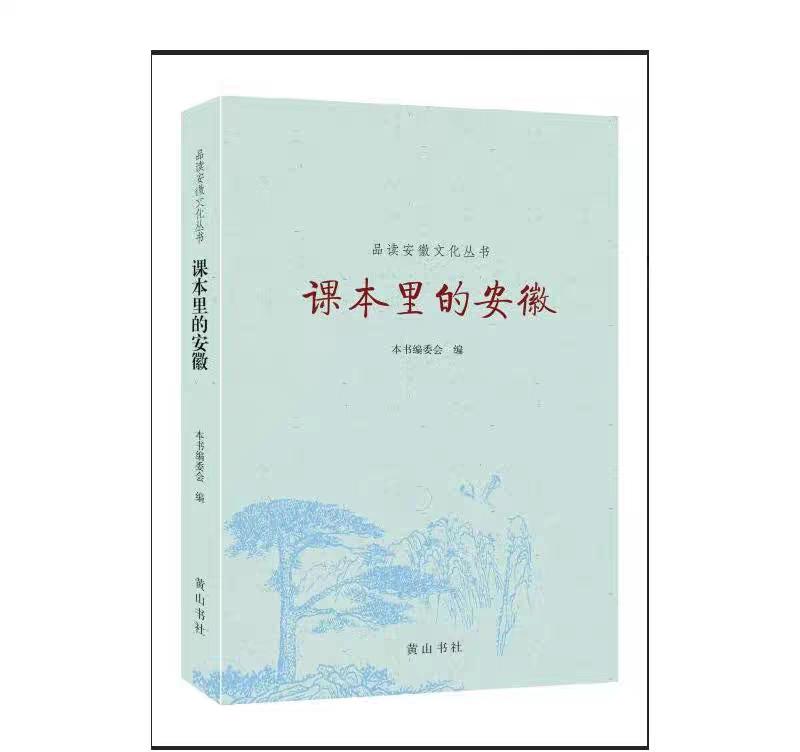
"Anhui in the Textbook"
This is the "Anhui in the Textbook" published by a publishing house in Anhui, how is the quality, see the following note -
Notes: "Zuo Zhongyi Gong Anecdote", by Fang Bao, selected from the "One Hundred and Eight Lessons of Chinese Literature", edited by Xia Qizun and Ye Shaojun, successively written from 1935 to 1938, published by Enlightened Bookstore, reprinted the original book of Sanlian Bookstore in 2008. Zuo Guangdou (左光斗), a native of MingtongCheng (明桐城; present-day Hengbu Town, Zongyang County). Zuo Guangdou was an important member of the Donglin Party in the late Ming Dynasty, served as a cabinet minister, and was also Shi Kefa's teacher. He made many efforts to save the Ming Dynasty, but he was unjustly imprisoned for opposing the eunuch Wei Zhongxian, and was killed by the jailers at the age of 51. When Nanming Hongguang was rehabilitated, he was loyal and righteous. ”
Textbook notes
This comment is only more than 100 words, how many errors and inadequacies are there?
First, the comments are not standardized
Notes should abide by the basic academic norms, where an article is selected from, generally refers to the initial selection, rather than seeing which book has it and saying where it was selected, which lacks authority or standardization. "Zuo Zhongyi Gong Anecdotes", written by Fang Bao, selected from the "One Hundred and Eight Lessons of Chinese Literature", is obviously out of standard. There is a provincial textbook annotation, which is relatively well done: "Zuo Zhongyi's Public Anecdotes" is selected from volume IX of the Complete Works of Mr. Fang Wangxi. This "The Complete Works of Mr. Fang Wangxi", compiled by Dai Junheng, has Qing Xianfeng engravings, etc., before the "One Hundred and Eight Lessons of Chinese Literature".
Second, chain errors
"Zuo Zhongyi's Public Anecdotes" should be annotated as "once selected for the "One Hundred and Eight Lessons of Chinese Literature", not "selected from the "One Hundred and Eight Lessons of Chinese Language".
Third, the syntax error
"Zuo Zhongyi Gong Yi Zhi
Fourth, the notes are unclear
"One Hundred and Eight Lessons in Chinese Literature", edited by Xia Qizun and Ye Shaojun, written successively from 1935 to 1938, published by enlightened bookstores" This annotation is not clear. "1935-1938", a junior high school Chinese textbook published by enlightened bookstores, is not the actual time of writing the "One Hundred and Eight Lessons of Chinese Language", but the time of publication of the first four volumes of "One Hundred and Eight Lessons of Chinese Language". The fifth and sixth volumes of the "One Hundred and Eight Lessons in Chinese Languages" could not be compiled and printed due to the outbreak of the War of Resistance.
Fifth, serious omissions
The only annotations to Zuo Guangdou are "Zuo Guangdou, a native of Mingtong City (present-day Hengbu Town, Zongyang County)", and the basic birth and death time and font size are not available.
Left Phototo Image
Sixth, historical errors
The commentary states: "Zuo Guangdou was an important member of the Donglin Party in the late Ming Dynasty and served as a cabinet minister. Zuo Guangdou's political experience was: the first conferred on the cabinet zhongshu sheren; in the forty-seventh year of the Wanli calendar (1619), he was awarded the imperial history of the left province of Zhejiang; in March of the third year of the Apocalypse (1623), he was promoted to the right temple of Dali Temple, and the left temple of the left temple; in September of the third year of the apocalypse, zuo Shaoqing of the Dali Temple of Jin; and the following year, he was appointed to the imperial history of the left capital of the Capital Chayuan. Zuo Guangdou did not "serve as a cabinet minister."
Seventh, the statement does not make sense
"But because of his confrontation with the eunuch Wei Zhongxian, he was unjustly imprisoned", which did not conform to modern Chinese norms, and the words and punctuation were improper.
Eighth, lack of validation
Zuo Guangdou "Rehabilitation when Nanming Hongguang" is the saying of the network text. The time when Zuo Guangdou was rehabilitated against Zhaoxue was the first year of Ming Chongzhen, not the Southern Ming Hongguang Dynasty.
Ninth, lack of rigor
"Grand Eunuch Wei Zhongxian" belongs to the folk saying. Wei Zhongxian's identity was that of a eunuch, "eunuch Wei Zhongxian".
Tenth, the annotations are superficial
The purpose of editing "Anhui in textbooks" alone is to better publicize Anhui. It is only a routine annotation, and it loses the meaning of compiling a book. If you make it up randomly, it will be a bit wrong.
Enlightened textbooks